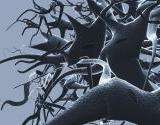Main Menu
Social isolation damages the brain
Social isolation in children may wreak havoc on the brain by disrupting a protein crucial to the development of the nervous system’s support cells. A new study in mice finds that when the animals are isolated during a crucial developmental period, brain cells called oligodendrocytes fail to mature properly. Oligodendrocytes are responsible for building the fatty insulating sheathes that cushion neurons. Their dysfunction seems to cause long-lasting behavioral changes.
Social isolation has a variety of negative effects
Social isolation has a variety of negative and lifelong effects on children including cognitive and social problems in neglected children to working memory troubles. Children and tested monkeys showed abnormalities in the white matter of the brain, which includes support cells such as oligodendrocytes as well as the fat-covered neural projections that act as the brain’s communication system.
Team sought to prove causal relationship
Researchers have not been able to show a causal relationship though between isolation and the damage to the brain cells. Gabriel Corfas, a professor of neurology and otolaryngology at Boston Children’s Hospital and Harvard Medical School, and his colleagues, wanted to better understand the relationship between the two events. They used mice for their experiments on the effects of isolation.
Axons were malformed and dysfunctional
The mice were tested at various times for sociability and working memory. The mice that had been left all alone had strange, stumpy oligodendrocytes. These cells usually show a long complex projection of axon that reaches out almost like a network of roots. The mice in isolation showed oligodendrocytes projections which were short and simple without the usual complexity. They also had thinner sheaths around the neural axons. This helps speed up communication between cells. It seems the causal relationship exists.
“So our lab and other investigators are working to try to understand how those pathways and these genetic susceptibilities may be linked to produce neuropsychiatric disorders,” concluded Corfas.
Source: Stephanie Pappas, Yahoo
This information is solely for informational and educational purposes only. The publication of this information does not constitute the practice of medicine, family planning, child psychology, marriage counseling and this information does not replace the advice of your physician or other health care or mental health care provider. Neither the owners or employees of NaturalFamilyOnline.com or the author(s) of site content take responsibility for any possible consequences from any treatment, procedure, exercise, dietary modification, application of medication or any other action involving the care of yourself or any family members which results from reading this site. It is always best to speak with your primary health care provider before engaging in any form of self treatment. Additional information contained in our Legal Statement


